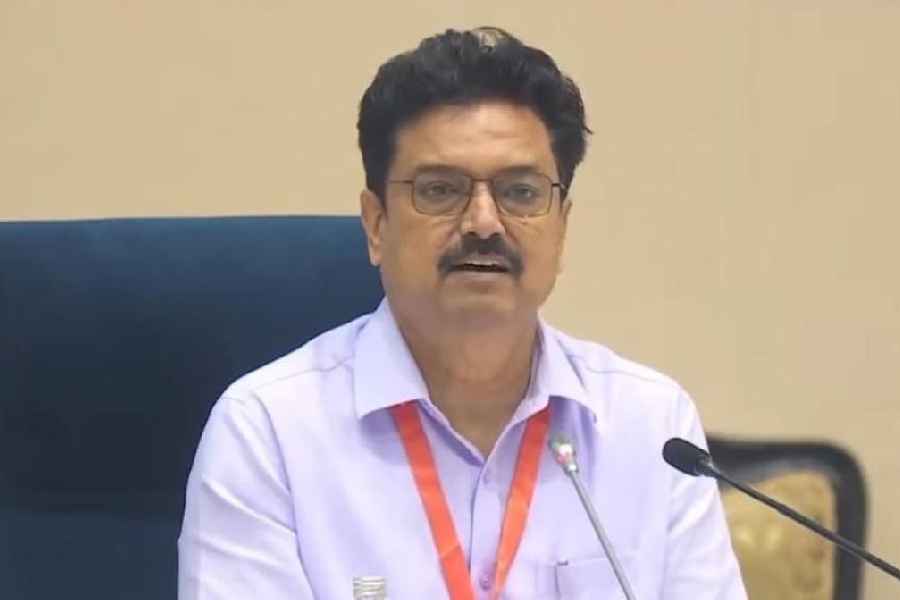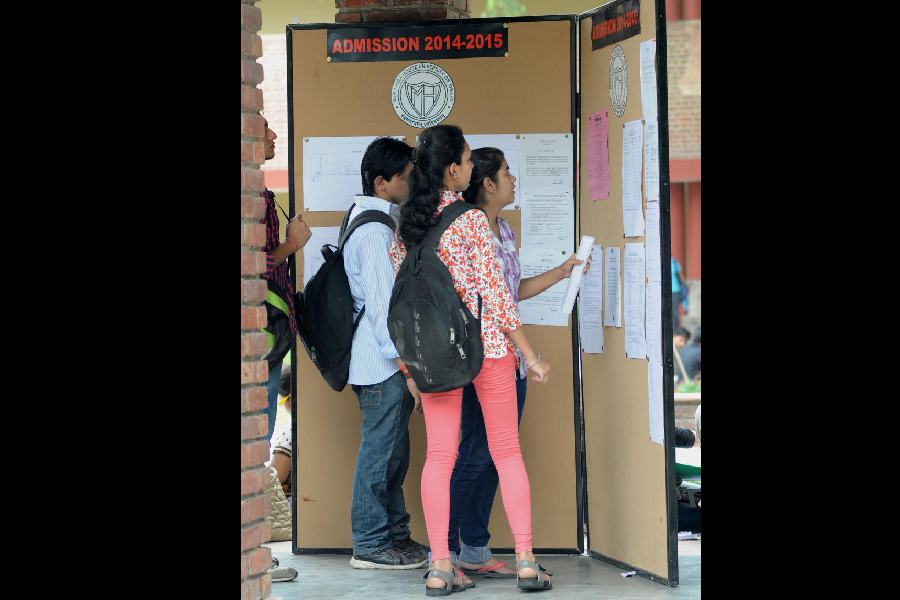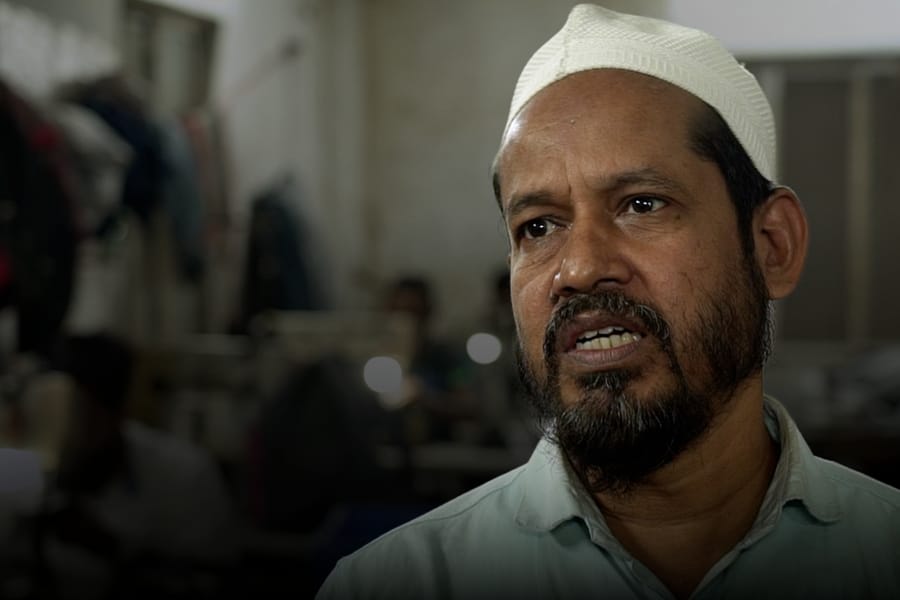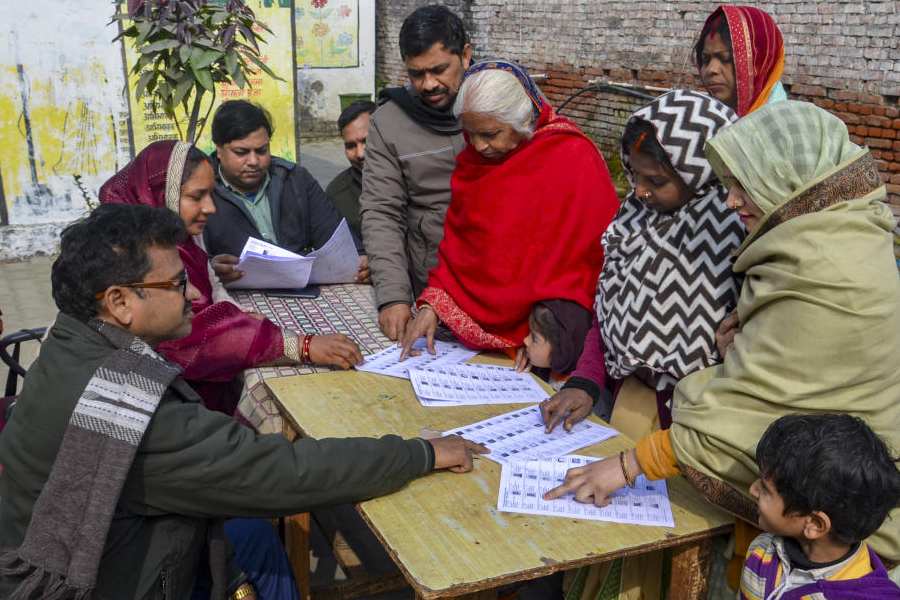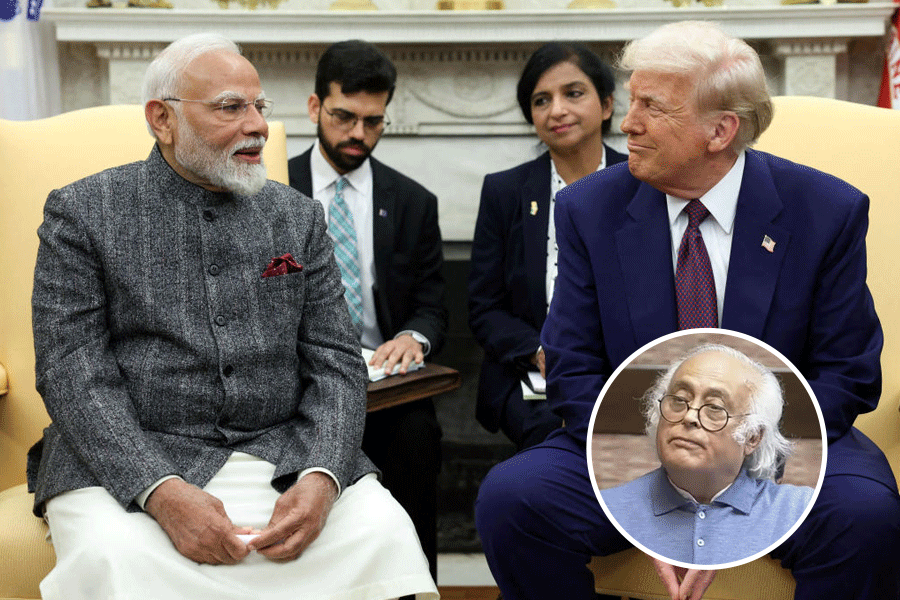To Delhi University vice-chancellor Yogesh Singh, the world around him is crawling with “urban Naxals”.
He knows who they are: Women students demanding their hostel gates stay open as long as men’s do; students protesting their peers’ endless jail stay pending trial; even those who make films critical of Naxalites but add too much nuance for the VC’s comfort.
Singh delivered a sermon on the subject at a seminar held by a BJP think tank last week, only for it to get overshadowed by Union home minister Amit Shah’s speech against Maoism at the event.
Undeterred, Singh has uploaded on YouTube his rant on “Why Campuses are the Targets”. It garnered nearly 2,000 views in the last four days.
Singh starts out by reminding his audience of the JNU sedition controversy of 2016 involving several students from that time — which is pending in court, and where a magisterial probe has questioned the veracity of the police's “evidence”.
He goes on to compare Vivek Agnihotri’s film Buddha in a Traffic Jam with Sudhir Mishra’s Hazaaron Khwaishein Aisi.
Agnihotri is credited with coining the term “urban Naxal”, and his film caricatures the far Left in academia. Mishra’s film is critical of the Emergency — anathema for the BJP too — as well as the Naxalites who opposed it.
Mishra also happens to be the grandson of the former Congress chief minister of Madhya Pradesh, D.P. Mishra. Singh accuses him of glorifying Naxalites.
“I believe that filmmakers who glorify them (Naxalites) in this way commit a crime against the country. They pollute the minds of small children. There is a great need to understand and identify them,” Singh says.
He adds: “Before I came to Delhi University, I was vice-chancellor of the Delhi Technological University. One day, I was sitting in my office when seven or eight girl students came to meet me. They said, ‘We are Pinjra Tod…. We want freedom from curfews…. It’s a curfew, you lock us in the hostel at 9pm.’”
Pinjra Tod is a group formed in Delhi a decade ago by women college students and alumni, whose activism led to the implementation of the University Grants Commission’s regulations against sexual harassment at several non-complaint institutions.
Singh recounts: “She said, ‘You can’t provide security. You can’t turn on the lights all over the campus. You can’t make Delhi safe and secure. We girls are the ones who suffer.’”
The VC goes on to link Pinjra Tod’s activism to alleged crimes that are yet to come to trial.
“It’s because their thinking developed in such a way that their founders, Devangana Kalita and Natasha Narwal, were both arrested in 2020 under the UAPA. Their names appeared in the Delhi riots. No respect for the country, no respect for parents, no respect for the system, arrogance of the highest order,” he says.
“This is also a form of urban Naxalism. It needs to be eradicated just as much…. We say that after this, the next challenge is to expel them from the university so that they don’t spoil the minds of innocent children.”
Kalita, Narwal and four others are out on bail in the Delhi riots conspiracy case, in which police have linked their protests against the new citizenship regime to the communal riots that claimed 53 lives in February 2020. Former JNU students Umar Khalid, Sharjeel Imam and 10 others remain in jail awaiting trial in the case.
“The 2018 Bhima Koregaon violence was basically a caste violence…. Hany Babu, an associate professor of English, was arrested and remains in jail,” Singh adds.
“I don’t know how many such academics there were, but I would like to share this for the children sitting here…. This is happening every day inside universities.”
He continues: “Don’t be fooled by their (claims of) innocence. Don’t be fooled by their arguments. Remember, they have compromised the interests of the country…. Expecting them to surrender would be nothing more than foolishness. They will not surrender. They will only have to be crushed.”
Singh concludes: “First, set a deadline that we will finish it in the next three years. We will finish it in four years. If the deadline has to be extended, it’s okay. But we must create an environment against this through research.
“We need to create a counter-narrative against this environment…. If universities have to fight this battle for this idea, the battle for ideas will be fought with ideas only, which is even more difficult.”
The seminar Singh addressed was titled “Bharat Manthan 2025: Naxal Mukt Bharat -- Ending Red Terror Under Modi’s Leadership”. It was organised by the Syama Prasad Mookerjee Research Foundation in partnership with the Association of Indian Universities at Vigyan Bhawan on September 28.
JNU row
The RSS student arm, Akhil Bharatiya Vidyarthi Parishad, led a Ravan Dahan at JNU on Thursday with pictures of Umar, Sharjeel, late Naxalite leader Charu Mazumdar and Mao Zedong, among others, representing the heads of Ravan. This led to fisticuffs with the Left-led JNU students’ union.
In a newspaper column in May, JNU vice-chancellor Santishree Dhulipudi Pandit had claimed that “premier institutions are slowly becoming havens for urban Naxal sympathisers”.
She had suggested that the “way forward is not to dismantle our institutions but to reclaim them by building alternative intellectual ecosystems, reforming recruitment and promotion mechanisms, and ensuring that Bharatiya civilisational values are not excluded from academic inquiry”.

